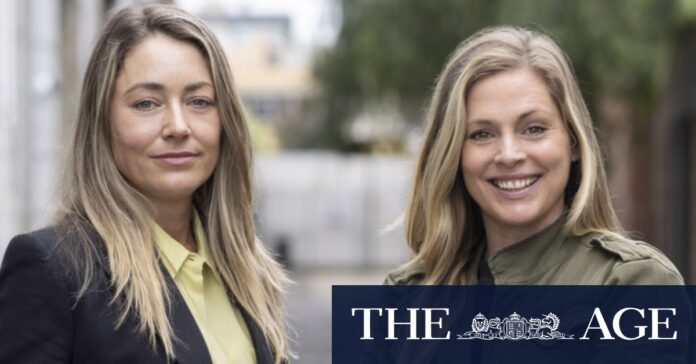[ad_1]
It comes as Australia’s largest venture capital funds are nearing their 10-year horizons, and need liquidity to pay out their first investors.

Rampersand managing partner Paul Naphtali.Credit: AFR
Mentorloop’s investors said they remained supportive of Lloyd and Holmes, despite no longer necessarily expecting a return on their investment.
“I think they’re great founders, and they’ve done extremely well to recognise that the growth path for them was to get profitable,” said Paul Naphtali, managing partner at VC firm Rampersand.
“Their journey has been very authentic to them, which has been fantastic, and we’re very supportive.
“Not every company we invest in will be the one that returns over 100x, and that’s OK. The model is not designed for everything to be successful.”
Blackbird partner Nick Crocker said he first met Lloyd and Holmes as part of the Startmate program in 2016.
“In the 12 weeks of the program, they tripled their revenue,” he said. “That growth was already exciting, but to see them scale their revenue by more than 50x since Blackbird invested in the company has been amazing. They’ve built the business to the point of profitability, and we’re extremely proud and excited to see their continued growth.”
Lloyd said Mentorloop continues to grow and recently launched in the US. It now works with more than 170 organisations globally including Woolworths and REA Group and has matched more than 40,000 mentorships globally since its 2016 launch.
A spokeswoman for Folklore said the venture capital firm “remains a big supporter of the Mentorloop team”.
“Folklore has always respected founders’ rights to choose their preferred path for their company. Founders in Heidi and Lucy’s position, who have control of their destiny and have made their own funding decisions, should be celebrated,” the spokeswoman said.
Loading
Matt Allen, the co-CEO of fintech Tractor Ventures, is an investor in Mentorloop through his family office.
“VC funds are looking for outliers. The challenge is that there are few outliers, that’s why they’re called outliers,” he said.
“When you sold your investors a rocket, and it turns out it’s a great ride for the customers and founders, but it’s not a rocket, it makes for a very awkward position. But for Mentorloop it is slightly less awkward because they don’t have any of their VCs on their board.
“As an investor there are a bunch of businesses in my portfolio that are clearly not going to be the next Canva or Atlassian. But they can still be excellent businesses.”
Other start-up founders said that avoiding venture capital had been the right move.
Quad Lock began life as a Kickstarter campaign by Rob Ward and Chris Peters in 2011, launching as a bike mount for iPhones and evolving into an adventure technology brand that last year cracked $100 million in revenue.

Quad Lock co-founder Rob Ward: “When you’re not tied up in securing funding, your attention isn’t split.”
Co-founder and chief growth officer Rob Ward says that growing Quad Lock without outside funding forced its executives to be frugal with their resources.
“Since we didn’t have spare capital lying around, we had to be ruthless in our investments, only putting money into things that genuinely moved the needle,” Ward says.
“One of the most significant benefits of not taking VC funding is the absolute focus founders can maintain on solving the problem at hand and serving their customers.
“When you’re not tied up in securing funding, your attention isn’t split. You’re fully committed to understanding and addressing your customer’s needs, which is a huge advantage. This focused approach often leads to more thoughtful and customer-centric solutions.”
Lloyd said that venture capital did allow Mentorloop to move quickly in its early days, and that it remains the right option for some start-ups, particularly those with “unicorn” aspirations. Godfrey Dinh is the CEO of Futurerent, a relatively new fintech allowing property investors to access rental income early.
“Venture capital has helped us grow, establish a market and competitive advantages faster than any other approach,” Dinh said.
“The current state of the venture market has brought about a healthy focus on unit economics and the right balance between growth and the bottom line.”
The Business Briefing newsletter delivers major stories, exclusive coverage and expert opinion. Sign up to get it every weekday morning.
[ad_2]
Source link


